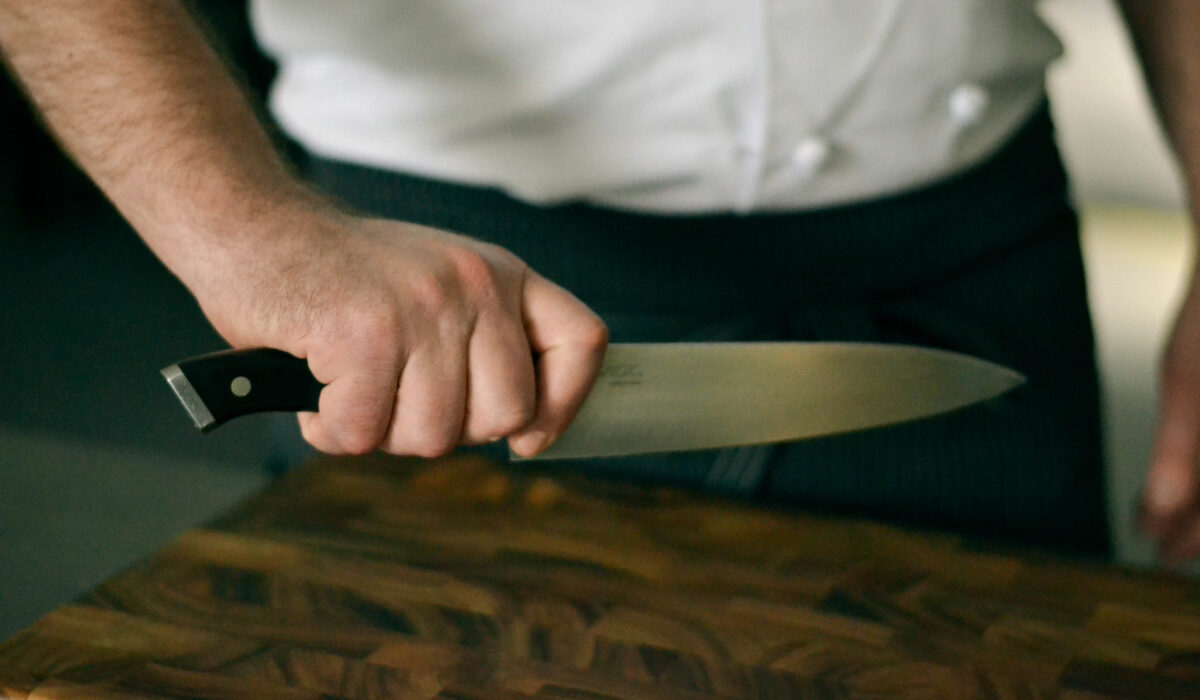For many kitchen professionals and culinary enthusiasts, a reliable knife is an indispensable tool. A German knife, known for its robustness and precision, is a prized possession in any kitchen. Ensuring the longevity and performance of these knives requires proper care and maintenance. In this German knife maintenance guide, we will delve into the essential steps to keep your knives in optimal condition.

Understanding Your German Knife
German knives are renowned for their durability and versatility. Crafted from high-carbon stainless steel, they are designed to retain a sharp edge while being resistant to rust and stains. However, even the best knives require regular upkeep to maintain their edge and appearance.
The Importance of Regular Maintenance
Regular maintenance not only preserves the knife’s sharpness but also extends its lifespan. By dedicating time to care for your knife, you ensure it performs at its best with every use. An important part of this process is understanding the common knife maintenance mistakes to avoid, ensuring you dont inadvertently damage your tool.
Cleaning Your German Knife
Proper cleaning is vital to maintaining your knife’s quality. After each use, wash your knife by hand with warm water and mild dish soap. Avoid submerging it in water for long periods, as this can lead to rusting. Always dry your knife immediately with a soft cloth to prevent moisture from damaging the blade.
Dishwasher: A Strict No
Despite the convenience, a dishwasher is detrimental to your knife. The harsh environment and detergents can dull the blade and damage the handle. Always opt for handwashing to ensure your knifes longevity.
Sharpening Your Knife
Keeping your knife sharp is crucial for both performance and safety. A dull knife requires more force, increasing the risk of accidents. Regular sharpening helps maintain the blade’s edge and ensures smooth, effortless cuts.
Choosing the Right Sharpening Tool
There are various tools available for sharpening, including whetstones, honing rods, and electric sharpeners. Each tool has its benefits, and choosing the right one depends on your skill level and preference. For insights on sharpening techniques, consider exploring knife sharpening myths to understand what truly works.
Proper Storage Techniques
Storing your knife correctly is as important as cleaning and sharpening. Misplaced storage can lead to dulling and damage.
Use a Knife Block or Magnetic Strip
A knife block or magnetic strip keeps your knife secure and prevents the blade from coming into contact with other utensils. This helps maintain its sharpness and prevents accidental injuries.
Understanding the Blade Angle
German knives typically have a blade angle of 20 degrees, which balances sharpness and durability. Maintaining this angle during sharpening is essential for preserving the knife’s performance.
Maintaining the Blades Integrity
When sharpening, ensure that you maintain the correct angle. This preserves the blades edge and prevents unnecessary wear. For more information on maintaining your knife’s blade, visit german knife care tips.
Handle Care for Longevity
The handle is often overlooked in knife maintenance, yet it plays a crucial role in control and comfort. Regularly check for signs of wear and clean the handle with mild soap and water. Depending on the material, occasional oiling may be necessary to prevent drying and cracking.
Material Matters
Handles can be made from wood, plastic, or composite materials. Each requires specific care, so ensure you follow the manufacturers guidelines for the best results.
Conclusion: Ensuring Your Knifes Longevity
By following this German knife maintenance guide, you ensure your knife remains a reliable tool in your kitchen. From proper cleaning to sharpening and storage, each step contributes to your knifes performance and durability. For those interested in understanding the difference between German and other knife styles, consider reading this insightful comparison of German and Japanese knives.

FAQs on German Knife Maintenance
How often should I sharpen my German knife?
It depends on usage, but generally, a home cook should sharpen their knife every few months. Regular honing can help maintain the edge between sharpenings.
Can I use a honing rod on my German knife?
Yes, a honing rod is excellent for maintaining the blade’s edge. Use it regularly to keep your knife sharp.
Is it necessary to oil the knife blade?
Occasionally oiling the blade with food-safe mineral oil can help prevent rust, especially if the knife is not used frequently.
This article contains affiliate links. We may earn a commission at no extra cost to you.


